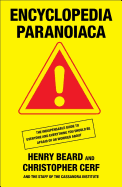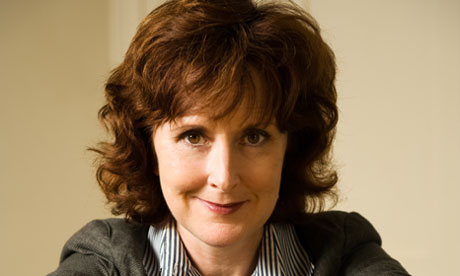 British actress, dancer and opera singer Moira Young, burst onto the YA scene with her first novel, Blood Red Road. This first title in the Dust Lands trilogy takes place in a near future where, as we stated in our Top 10 Picks for 2011, "Its Mad Max–like anarchy and arid setting lay the foundation for a prickly heroine to mature." In the second episode, Rebel Heart (S&S/McElderry), Saba, who rescued her twin, Lugh, in the first book, now searches for Jack, her soulmate from Blood Red Road.
British actress, dancer and opera singer Moira Young, burst onto the YA scene with her first novel, Blood Red Road. This first title in the Dust Lands trilogy takes place in a near future where, as we stated in our Top 10 Picks for 2011, "Its Mad Max–like anarchy and arid setting lay the foundation for a prickly heroine to mature." In the second episode, Rebel Heart (S&S/McElderry), Saba, who rescued her twin, Lugh, in the first book, now searches for Jack, her soulmate from Blood Red Road.
What has singing opera taught you about storytelling?
More than I ever imagined. I was only ever a jobbing singer and never worked for any of the big houses. Nonetheless, I had the privilege of inhabiting story on a grand scale. Opera deals with the big stuff of life, all [set] to a sublime orchestral accompaniment, with wonderful costumes and a lavish set, divided into scenes and acts.
Saba's story is one of epic scale, concerned with the big, universal themes. I think of the books in the Dust Lands trilogy as acts in a three-act opera. Each fulfills a function within the storytelling arc, and each has its own very particular mood, shape and momentum. We hear echoes of the past and intimations of the future as themes are reiterated, renewed and reassembled. The other influence of opera can clearly be seen in the language of the book and also in the way the text is laid out on the page. I write in pulses and rhythms and beats and arcs, speaking aloud as I go.
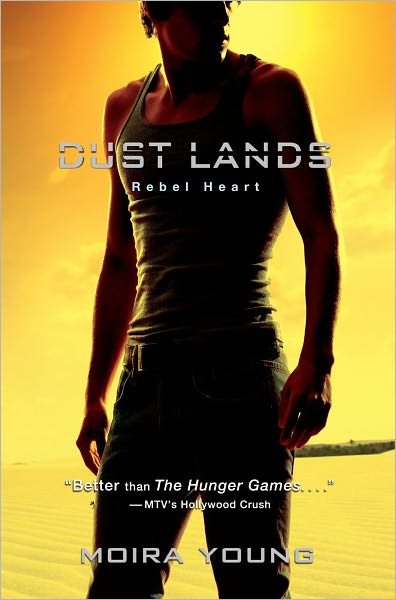 In this installment, the ground shifts beneath us. Like Saba, we don't know whom we can trust. Is that how you wanted us to feel?
In this installment, the ground shifts beneath us. Like Saba, we don't know whom we can trust. Is that how you wanted us to feel?
Most definitely. My aim was to unsettle everyone; the characters, the reader and me. I wanted to step aside from this part of the story on a profoundly uneasy note.
We loved the new territory you travel here. The endless Waste, the lush area around the Weeping Water. And the new characters you introduce--Slim and Auriel. Did you plan your cast of characters and settings in advance? Or did they appear to you as the story needed them?
The new territory and characters emerged as the story did. I always feel that, bit by bit, a story comes up into the light from the depths of my subconscious. I have to sit quietly in my boat, alone in the middle of the deep, dark lake and wait for it to come to the surface for air.
As far as characters go, Slim came as a complete surprise. He just appeared one day, fully formed, driving the Cosmic in his pink dress, and I couldn't get rid of him. I also couldn't shut him up! It was quite some time before I realized what his role was in the story. He knew why he was there and he appeared at exactly the right moment. It's really very strange the way that kind of thing happens. Auriel Tai emerged more gradually. I couldn't see her properly and her character couldn't develop until I found the right name for her. I called her Penn Winterborn for a long time, but that name was far too earthbound for a star reader, and she didn't come to life.
Did you plot out all three books in advance?
I wish! No, I tumbled headfirst into the bottomless pit of Blood Red Road and dragged myself out of it, exhausted and battered, four years later. Then I did the same with Rebel Heart, but managed to surface rather more quickly; 19 months in that case. Blood Red Road wasn't planned in any way. It's just that I couldn't shake off this whisper of a story about a girl, at some future time, in some future place, who goes in search of her kidnapped brother. As I inched towards her voice and her story, I began to realize that it was a classic hero's journey of the sort that Joseph Campbell talks about. That gave me a clear route to follow. I'm finding that I'm having to do a great deal of planning for the final book in the trilogy. I hope that means that the writing will go more swiftly. We shall see!
In both books, there's a question of whether we or the stars rule our fate. Though Lugh balks loudest at the idea of the stars ruling our fates, he seems most at fate's whim, while Saba's openness to the idea seems to allow her greater freedom to shape her own destiny.
Well, it seems that every way Lugh turns, fate slams down another bar of the cage it's building around him. He was trapped at the age of nine when he--the older, stronger, more self-assured twin--took responsibility for his two sisters, himself and their father, broken by the death of his wife. Yes, of course, Lugh rages at fate, all the while denying its undoubted power. Lugh is a good person. He had the courage and empathy to take responsibility for his family, but he's limited by his view of himself as someone without power over his own life. He's captive at Silverlake, imprisoned at Freedom Fields and even when he's liberated, he remains trapped inside the bars of his own self-perception.
In many ways, Saba is more fortunate. Unlike her brother, she has always enjoyed a certain amount of freedom, primarily psychic and emotional. You can see it in her attitude to Emmi at the beginning of the story. Unlike Lugh, she is selfish. She's really only tied to Lugh. Lugh is tied to his father, Saba, Emmi and--having been her favorite--his dead mother as well. Once Lugh is kidnapped, Saba goes out into the wider world and discovers who she is without him. She is not defined by her past, trapped by it, in the same way that he is. She is also a person who acts first and thinks later. She learns by trial and error, whereas Lugh thinks and loses the chance to act. Saba's relative freedom and more impulsive character gives her the opportunity to experiment with life in a way that isn't possible for her brother. --Jennifer M. Brown
 Congratulations to Bank Square Books, Mystic, Conn., which will open for business today at 11 a.m. Because of flooding during Hurricane Sandy, the floor was rebuilt--tile replacing a carpet--parts of walls were replaced and other changes were made, all at breakneck speed.
Congratulations to Bank Square Books, Mystic, Conn., which will open for business today at 11 a.m. Because of flooding during Hurricane Sandy, the floor was rebuilt--tile replacing a carpet--parts of walls were replaced and other changes were made, all at breakneck speed.








 Next Saturday, November 24, the ABA's first multi-publisher promotion, Thanks for Shopping Indie, launches in conjunction with Small Business Saturday, which last year attracted 103 million people. More than 20 publishers have worked with the association to select 66 titles, all Indie Next List picks, for the promotion, that will be offered at an additional discount to booksellers.
Next Saturday, November 24, the ABA's first multi-publisher promotion, Thanks for Shopping Indie, launches in conjunction with Small Business Saturday, which last year attracted 103 million people. More than 20 publishers have worked with the association to select 66 titles, all Indie Next List picks, for the promotion, that will be offered at an additional discount to booksellers.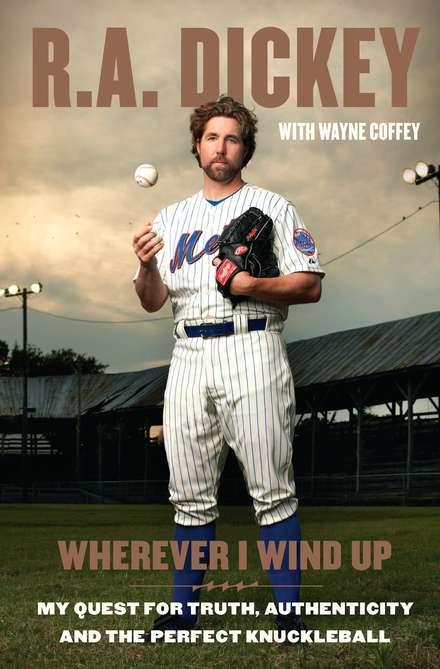 Congratulations to R.A. Dickey, the New York Mets knuckleball pitcher who has won the Cy Young Award in the National League. In a sport with literary affinities, Dickey is one of the most articulate and bookish players in the game: he was an English lit major at the University of Tennessee, is an avid reader and is the author with Wayne Coffey of an unusually candid, fresh autobiography, Wherever I Wind Up: My Quest for Truth, Authenticity and the Perfect Knuckleball (Blue Rider Press, $26.95, 9780399158155), published this past March.
Congratulations to R.A. Dickey, the New York Mets knuckleball pitcher who has won the Cy Young Award in the National League. In a sport with literary affinities, Dickey is one of the most articulate and bookish players in the game: he was an English lit major at the University of Tennessee, is an avid reader and is the author with Wayne Coffey of an unusually candid, fresh autobiography, Wherever I Wind Up: My Quest for Truth, Authenticity and the Perfect Knuckleball (Blue Rider Press, $26.95, 9780399158155), published this past March.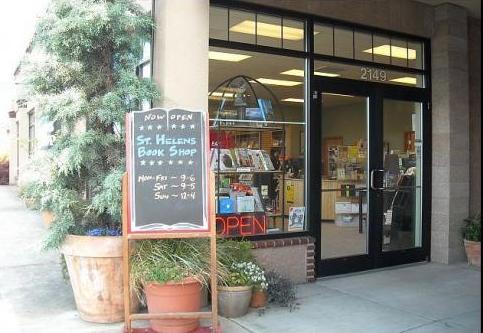 St. Helens Book Shop
St. Helens Book Shop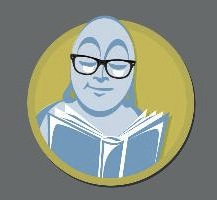 The website
The website  In August, the Amazon Fire was cited by 17% of e-book consumers as their first choice for reading e-books, up from zero the previous August, while B&N's Nook has risen to 7% from 2%. Apple's iPad has remained at about 10%. Tablets thus now are the first choice for about a third of the e-reading public. At the same time, dedicated e-reading devices have slid in popularity in direct proportion to the growth of tablets.
In August, the Amazon Fire was cited by 17% of e-book consumers as their first choice for reading e-books, up from zero the previous August, while B&N's Nook has risen to 7% from 2%. Apple's iPad has remained at about 10%. Tablets thus now are the first choice for about a third of the e-reading public. At the same time, dedicated e-reading devices have slid in popularity in direct proportion to the growth of tablets. 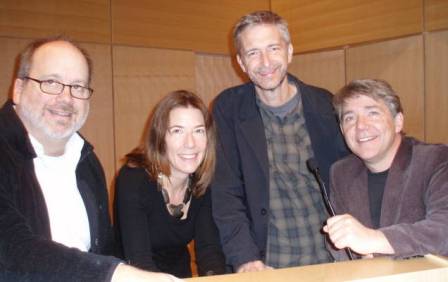 From Screen to Book: (l .to r.) Tony Fucile and Holly McGhee (aka Hallie Durand), collaborators on Mitchell's License; Scott Nash (The High Skies Adventures of Blue Jay the Pirate); and Peter Reynolds (Sky Color) discussed the fluidity of visual storytelling last Saturday at the Cambridge Public Library, in celebration of the 20th anniversary of Candlewick Press.
From Screen to Book: (l .to r.) Tony Fucile and Holly McGhee (aka Hallie Durand), collaborators on Mitchell's License; Scott Nash (The High Skies Adventures of Blue Jay the Pirate); and Peter Reynolds (Sky Color) discussed the fluidity of visual storytelling last Saturday at the Cambridge Public Library, in celebration of the 20th anniversary of Candlewick Press.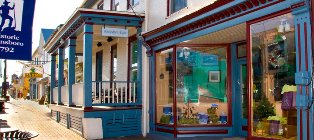 The centerpiece of the Roberts family empire is
The centerpiece of the Roberts family empire is 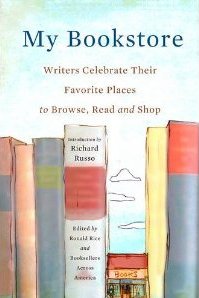 The contest is in celebration of My Bookstore: Writers Celebrate Their Favorite Places to Browse, Read, and Shop edited by Ronald Rice, just published. A major portion of the scholarship funding was generously donated by the authors who contributed to the book.
The contest is in celebration of My Bookstore: Writers Celebrate Their Favorite Places to Browse, Read, and Shop edited by Ronald Rice, just published. A major portion of the scholarship funding was generously donated by the authors who contributed to the book. Vegan Eats World: 300 International Recipes for Savoring the Planet
Vegan Eats World: 300 International Recipes for Savoring the Planet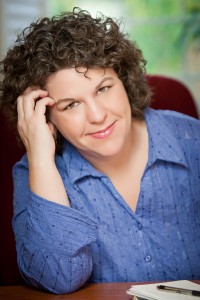 Polly Campbell
Polly Campbell Book you're an evangelist for:
Book you're an evangelist for: British actress, dancer and opera singer Moira Young, burst onto the YA scene with her first novel,
British actress, dancer and opera singer Moira Young, burst onto the YA scene with her first novel,  In this installment, the ground shifts beneath us. Like Saba, we don't know whom we can trust. Is that how you wanted us to feel?
In this installment, the ground shifts beneath us. Like Saba, we don't know whom we can trust. Is that how you wanted us to feel?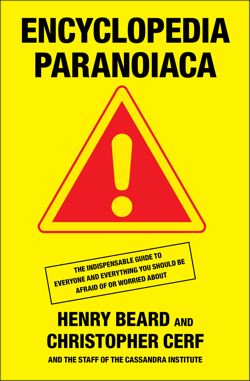 You can get the gist of Encyclopedia Paranoiaca from its extensive subtitle: "The Definitive Companion of Things You Absolutely, Positively Must Not Eat, Drink, Wear, Take, Grow, Make, Buy, Use, Do, Permit, Believe, or Let Yourself Be Exposed To... Lethal, Horrible Stuff That You Thought Was Safe, Good, or Healthy... People Who Are Out to Get, Cheat, Steal From, or Otherwise Take Advantage of You; and a Whole Host of Existential Threats and Looming Dooms." National Lampoon co-founder Henry Beard teams up with Christopher Cerf, one of the magazine's first contributing editors, to deliver an alphabetical listing of all the ways in which the world is out to get us.
You can get the gist of Encyclopedia Paranoiaca from its extensive subtitle: "The Definitive Companion of Things You Absolutely, Positively Must Not Eat, Drink, Wear, Take, Grow, Make, Buy, Use, Do, Permit, Believe, or Let Yourself Be Exposed To... Lethal, Horrible Stuff That You Thought Was Safe, Good, or Healthy... People Who Are Out to Get, Cheat, Steal From, or Otherwise Take Advantage of You; and a Whole Host of Existential Threats and Looming Dooms." National Lampoon co-founder Henry Beard teams up with Christopher Cerf, one of the magazine's first contributing editors, to deliver an alphabetical listing of all the ways in which the world is out to get us.